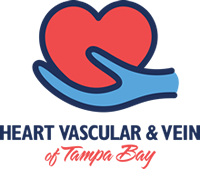Heart Monitoring
Providing information about your heart to your doctor
WHY MONITOR YOUR HEART?
Advanced technology makes it possible for your doctor to get information about your heart without interrupting your life. Continuous heart monitoring is useful for capturing irregular heartbeats that happen infrequently — in some cases, you may not even feel any symptoms. Depending on your situation, your doctor may recommend heart monitoring.
UNDERSTANDING POTENTIAL HEART CONDITIONS
Accurate information is the key to better healthcare. Continuous heart monitoring gives your doctor important information about your health that can help with diagnosis and treatment of underlying heart conditions.
Conditions that heart monitoring is often used to diagnose or manage include:
UNEXPLAINED FAINTING
Fainting is a common problem accounting for 740,000 emergency department visits in the U.S. each year. Half of patients admitted to the hospital leave without a diagnosis. People faint for many reasons but it can be a sign of an underlying heart condition.
Learn More About Unexplained FaintingHEART PALPITATIONS
Heart palpitations are relatively common, accounting for 16% of symptoms that cause patients to go to their primary care doctor.3-5 While they are usually harmless, heart palpitations can be a sign of a more serious heart condition.
Learn More About Heart PalpitationsATRIAL FIBRILLATION
Atrial fibrillation (AF) is a common condition in which the upper chambers of the heart beat very fast and irregularly, so the heart can’t pump blood effectively to the rest of the body. Left untreated, it can lead to stroke.
Learn More About Atrial fibrillationATRIAL FIBRILLATION MANAGEMENT
If you have AF or your doctor suspects that you do, cardiac monitoring may be necessary to determine how often and how long it occurs. Sometimes episodes of AF are infrequent and require longer-term monitoring and, in some cases, your doctor may also want to monitor how effective different treatments are at keeping your AF under control.
Learn More About AF ManagementUNEXPLAINED STROKE
A stroke happens when a blood vessel in the brain is suddenly blocked or bursts, resulting in damage to the brain tissue. The majority of strokes occur as a result of an obstruction, such as a blood clot. Atrial fibrillation is a major risk factor for stroke. An unexplained (or cryptogenic) stroke is a stroke of unknown cause, which requires further testing.
Learn More About Unexplained StrokeInformation on this site should not be used as a substitute for talking with your doctor. Always talk with your doctor about diagnosis and treatment information.
